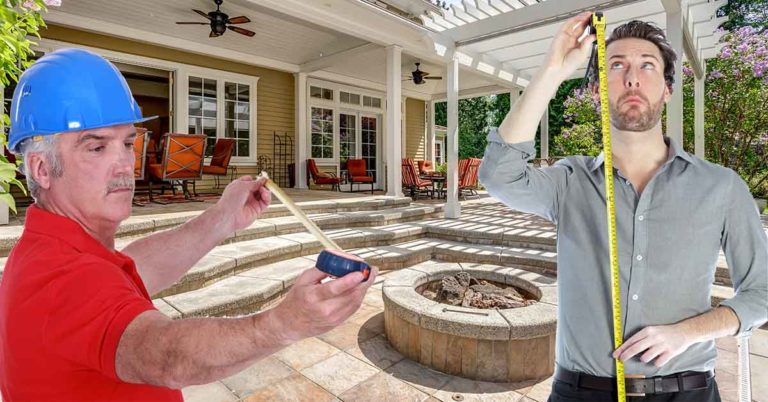Can Outdoor Heaters Explode? Are They Dangerous? (12 Things to Know Before Using!)
As the temperatures drop, we turn to outdoor heaters to keep us warm and cozy while enjoying time outside. But before you fire up your heater, it’s important to know whether it can explode and what safety precautions you should take.
Below, I’ll take a closer look at the potential dangers of outdoor heaters and how to stay safe while using them.
Can Outdoor Heaters Explode?
Outdoor heaters can potentially explode if they are not used properly or if they are not maintained correctly.
- Most outdoor heaters use propane or natural gas as fuel.
- It can be highly flammable if not handled carefully.
However, outdoor heaters are generally safe when used and maintained properly and pose minimal risk.
Here’s a list of things to keep in mind when using outdoor heaters:
1. Follow the Manufacturer’s Instructions
Always read and follow the manufacturer’s instructions for using and maintaining your outdoor heater. This will help ensure that you are using the heater safely and correctly.
2. Keep Your Heater Away From Flammable Materials
Avoid flammable materials, such as furniture, plants, or curtains, when using your outdoor heater.
3. Never Leave Your Heater Unattended
It’s important always to monitor your outdoor heater while in use. Never leave a gas heater unattended, especially in the presence of children and pets.
4. Use Caution When Handling Fuel
If your outdoor heater uses propane or natural gas as fuel, use caution when handling and storing it.
Always follow the manufacturer’s instructions for handling and storing the fuel, and store it in a safe and secure location.
5. Inspect Your Heater Regularly
Regularly inspect your outdoor heater for signs of wear and tear, such as cracks or leaks.
If you notice any issues, contact a professional to have them repaired or replaced as soon as possible.
6. Use a Safety Shut-Off Valve
Consider using a safety shut-off valve. It will automatically shut off the gas supply to the heater if it is knocked over or tilted.
This can help prevent gas leaks and reduce the risk of fire or explosion.
7. Make Sure the Area is Well-Ventilated
When using a gas-powered heater, ensure the area where it’s being used is well-ventilated.
This will help prevent the buildup of potentially dangerous fumes and gases, which can harm your health.
8. Check for Gas Leaks
Before using your gas-powered outdoor heater, it’s important to check for gas leaks. This can be done by spraying soapy water around the gas connections and watching for bubbles.
If you see any bubbles, there may be a gas leak, and you should turn off the gas supply and have the heater inspected by a professional.
9. Use a Stable and Level Surface
Placing your outdoor heater on a stable and level surface is important. This will help prevent it from tipping over, which can cause gas leaks or fires.
If your outdoor living space is uneven, consider using a leveler or other tools to help stabilize the heater.
10. Store Your Outdoor Heater Properly
When you’re not using your outdoor heater, store it in a dry, well-ventilated area away from any sources of heat or flames.
If your heater uses propane tanks, store them outside in a cool, dry area. Keep them away from direct sunlight or heat sources.
This will help prevent damage to the heater and ensure it’s ready to use the next time you need it.
11. Use a Protective Cover
But can outdoor heaters be left out in the rain? Well, many outdoor heaters can handle some exposure to rain, but consider using a protective cover when the devices are not in use.
Cover can help protect them from the elements, such as rain or snow, which can cause damage over time.
Remove the cover before using the heater again to avoid the risk of fire or overheating.
Using your outdoor heater safely and responsibly allows you to enjoy the warmth and comfort of your outdoor living space without any unnecessary risks.
Always prioritize safety and take the necessary precautions to protect yourself and your loved ones.
12. Use Common Sense
Always use common sense when using your outdoor heater. Never use it in enclosed spaces, near combustible materials, or in any situation where it could pose a risk to your safety or the safety of others.
If you have doubts about using your outdoor heater safely, consult the manufacturer’s instructions or contact a professional for guidance.
The Bottom Line
Outdoor heaters can be a great addition to your outdoor living space. However, using one safely and responsibly is important to avoid potential dangers.
Always follow the manufacturer’s instructions, keep your heater away from flammable materials, and never leave it unattended.
By taking these precautions, you can enjoy the warmth and comfort of your outdoor heater with peace of mind. Stay warm and stay safe!


